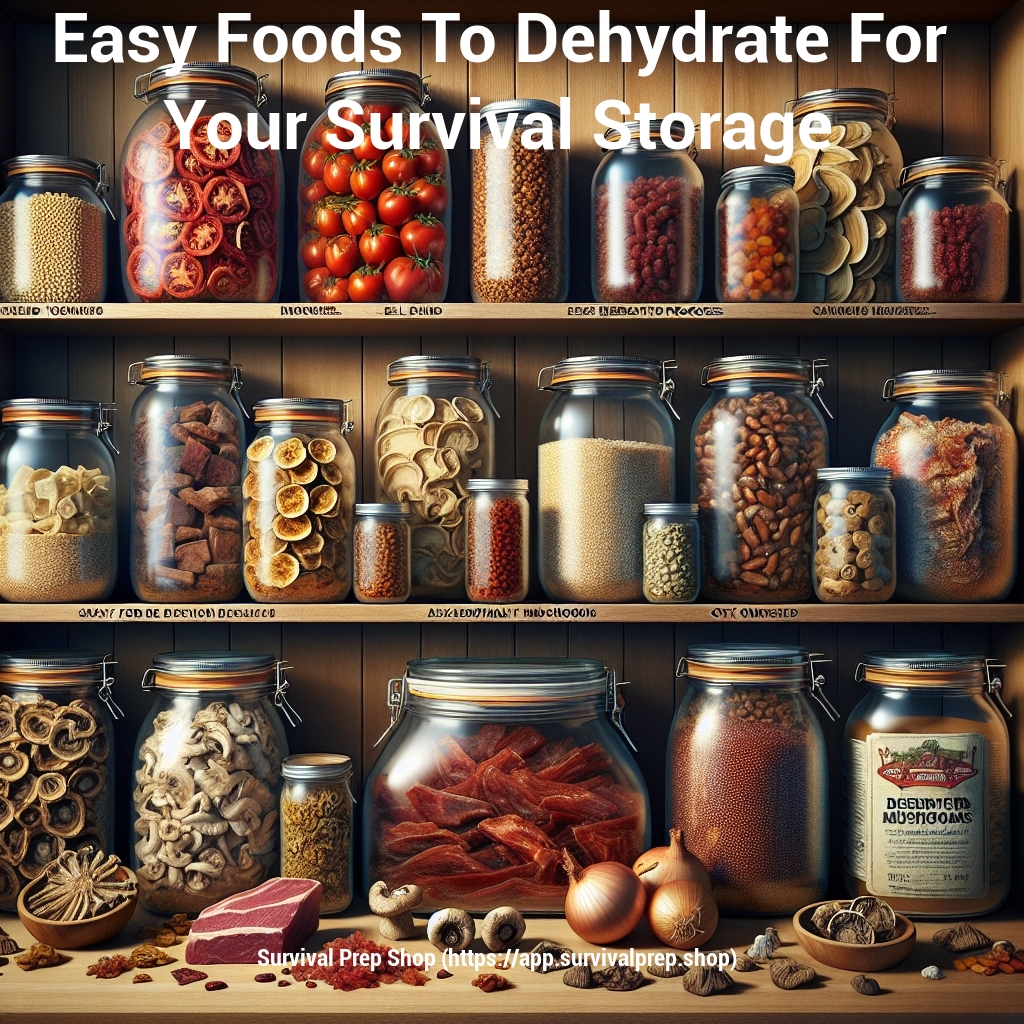
Welcome fellow survival enthusiasts! I'm TK, and I'm thrilled to guide you through today's practical insights into self-reliance. Remember, the tips and stories you'll hear are born from my own journey and dedication to preparedness. Putting together a fully stocked pantry is essential for a survival plan. You are responsible for yourself and your family in a crisis, and sustaining can be harder than you think. Are you of an idea that hoarding food products is easy? It is anything but easy.
Preppers start by planning in advance, following by investing heaps of money and time. You can always purchase fancy dried and frozen food items available in stores, but dehydrating self-grown produce is a much cheaper option. Of course, you need to put in extra labor. This shouldn't steer you away since preppers train themselves to be self-reliant. Dehydrated edibles and canned food have a longer shelf life, compared to the frozen consumables. It doesn't have to be veggies only; you can dehydrate fruits and meat and stock them for a long duration.
Stockpiling food items for your survival storage is not limited; there are countless options to choose from. Let's read about a few food items that preppers reckon easy to store:
- Tomatoes – Dehydrating tomatoes is a quick process. It is delicious and can be dried off using bright sunlight. The scorched skin of the fruit works as an excellent thickener and can be snacked upon too.
- Ground meat – Is meat a key part of your diet? Getting hands on fresh meat is certainly out of question when circumstances turn south. Preppers work on treating meat and storing them for the times to come. Ground meat is a great example. Be it the hamburgers you love to chow down or healthy turkey meat, dehydrating the protein is fairly simple. Ground meat can easily be rehydrated, right before consumption.
- Banana – Chips made of bananas are crowd favorites. Unfortunately, the store-bought ones are often glazed with sugar for an added taste. They are expensive too. You can dehydrate the bananas yourself and create healthy snacking options. Dehydrated bananas can be stored for a very long time.
- Onion – This vegetable is a primary ingredient for most savory meals. Did you know you can dice up onions, dehydrate them, and save them for future use?
- Beans – Preppers consider beans as holy grails. Beans are the richest sources of proteins known. They have a longer shelf life. Doesn't matter which form of beans you choose, cooking dehydrated and packed beans is easier done than thought.
- Mushrooms – Dried mushrooms make a great snack. Also, these are brimming with protein and are cheap to cultivate. But, wild mushrooms may not be your best bet since it isn't very safe once it has been canned under pressure. You can always choose oyster mushrooms to dehydrate.
- Okra – Speaking of cheap and nutritious, okra makes it to the top of the list. The green vegetable grows abundantly and can be plucked out, dehydrated, and packed for consumption.
- Potatoes – Storing dehydrated potatoes is not unknown. The root veggie can be preserved in various forms. Also, potatoes take very little time to cook, which makes them a favorite pick for preppers.
- Turmeric – The root option is a brilliant anti-inflammatory and has heaps of medicinal value. It can easily be dehydrated and ground into fine powder to be used in cooking.
- Broccoli – Healthy and chockfull of calcium, broccoli is pretty much a staple in regular kitchens. You can dry up broccoli, dehydrate it, and munch on it later.
As we come to the end of our journey today, I hope my words have offered you some valuable insights. Your company on this path is always appreciated. Thank, and keep staying prepared. Thanks again. TK – Survival Prep Shop
